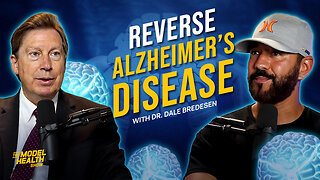23 - Selective Outrage - The Harmful Inconsistency of Moral Values and Principles
In this eye-opening episode of "Selective Outrage: The Harmful Inconsistency of Moral Values and Principles," we delve deep into the concept of selective outrage, a widespread behavior characterized by inconsistency in moral values and principles. Unpacking 19 striking examples, we reflect on how this selective outrage may impact both the people expressing it and its recipients. We explore why it's harmful, its prevalence, and the importance of critical thinking before joining an outrage bandwagon. Join us as we aim to promote consistency in moral values, encourage constructive dialogue, and prioritize genuine problem-solving.
#selectiveoutrage #moralvalues #socialpsychology #criticalthinking #hypocrisy #outrageculture #constructivedialogue #humanrights #animalrights #culturalappropriation #immigration #privacyviolations #climatechange #traditionalvalues #cancelculture #socialjustice #problemsolving
References for Further Reading:
Carroll, L. (2010, December 27). From “The Iliad” to “Us Weekly”: The History of Celebrity Gossip. The Atlantic. https://www.theatlantic.com/entertainment/archive/2010/12/from-the-iliad-to-us-weekly-the-history-of-celebrity-gossip/67997/
Chapman, C. M., Masser, B. M., & Louis, W. R. (2020). Identity motives in charitable giving: Explanations for charity preferences from a global donor survey. Psychology & Marketing, 37(9), 1277–1291. https://doi.org/10.1002/mar.21362
Chomsky, A. (2021). Central America’s Forgotten History: Revolution, Violence, and the Roots of Migration. Beacon Press.
Chung, Y. W., Im, S., & Kim, J. E. (2021). Can Empathy Help Individuals and Society? Through the Lens of Volunteering and Mental Health. Healthcare, 9(11), 1406. https://doi.org/10.3390/healthcare9111406
Convincing the Unconvinced That Animal Welfare Matters. (2012, June 8). HuffPost. https://www.huffpost.com/entry/animal-welfare_b_1581615
Crenshaw, D. (2020). Fortitude: American Resilience in the Era of Outrage. Twelve.
Cryder, C. (n.d.). The Critical Link Between Tangibility and Generosity.
Ditto, P. H., & Lopez, D. F. (1992). Motivated skepticism: Use of differential decision criteria for preferred and nonpreferred conclusions. Journal of Personality and Social Psychology, 63(4), 568–584. https://doi.org/10.1037/0022-3514.63.4.568
Dwoskin, E., & Romm, T. (2018, March 20). Facebook’s rules for accessing user data lured more than just Cambridge Analytica. Washington Post. https://www.washingtonpost.com/business/economy/facebooks-rules-for-accessing-user-data-lured-more-than-just-cambridge-analytica/2018/03/19/31f6979c-658e-43d6-a71f-afdd8bf1308b_story.html
Geiger, A. (2017, October 5). The Partisan Divide on Political Values Grows Even Wider. Pew Research Center - U.S. Politics & Policy. https://www.pewresearch.org/politics/2017/10/05/the-partisan-divide-on-political-values-grows-even-wider/
India’s tiger killings: A success story gone wrong? (2018, November 6). BBC News. https://www.bbc.com/news/world-asia-india-46095118
Jacobs, B. (n.d.). What defines cultural appropriation? Retrieved August 2, 2023, from https://www.bbc.com/culture/article/20220513-what-defines-cultural-appropriation
Kamler, H. (2020). In Defense of Political Correctness. Ipbooks.
Khamallah, N. (n.d.). Council Post: Solidarity Or Hypocrisy? Go Beyond Optics To Action. Forbes. Retrieved August 2, 2023, from https://www.forbes.com/sites/forbestechcouncil/2020/07/22/solidarity-or-hypocrisy-go-beyond-optics-to-action/
LeDoux, J. E., & Brown, R. (2017). A higher-order theory of emotional consciousness. Proceedings of the National Academy of Sciences, 114(10). https://doi.org/10.1073/pnas.1619316114
Lindsay, K. (2022, November 30). Instagram Is Over. The Atlantic. https://www.theatlantic.com/technology/archive/2022/11/instagram-tiktok-twitter-social-media-competition/672305/
Lipsitz, K., & Pop-Eleches, G. (2020). The Partisan Divide in Social Distancing. SSRN Electronic Journal. https://doi.org/10.2139/ssrn.3595695
Mintz, S. (n.d.). The Murky Complexities of Cultural Appropriation. Retrieved August 2, 2023, from https://www.insidehighered.com/blogs/higher-ed-gamma/murky-complexities-cultural-appropriation
Motor Vehicle Safety | Injury Center | CDC. (2020, April 1). https://www.cdc.gov/injury/erpo/icrc/topic_motor-vehicle-safety.html
Mounk, Y. (2018, October 10). Americans Strongly Dislike PC Culture. The Atlantic. https://www.theatlantic.com/ideas/archive/2018/10/large-majorities-dislike-political-correctness/572581/
News, A. B. C. (n.d.). Americans Less Generous in Japan Disaster Relief? ABC News. Retrieved August 2, 2023, from https://abcnews.go.com/Politics/japan-earthquake-us-charities-smaller-donations-americans-haiti/story?id=13161261
Palmer, K. M. (n.d.). The WIRED Guide to Climate Change. Wired. Retrieved August 2, 2023, from https://www.wired.com/story/guide-climate-change/
Park, M. (2018, January 1). Chicago police count fewer murders in 2017, but still 650 people were killed. CNN. https://www.cnn.com/2018/01/01/us/chicago-murders-2017-statistics/index.html
Petridis, A. (2014, October 9). Hey, celebrities. Why so quiet on the Ebola crisis? The Guardian. https://www.theguardian.com/lifeandstyle/lostinshowbiz/2014/oct/09/ebola-crisis-worlds-celebrities-kim-kardashian-akon
Rep. Gallegly, E. [R-C.-24. (2010, December 9). Text - H.R.5566 - 111th Congress (2009-2010): Animal Crush Video Prohibition Act of 2010 (2010-06-22) [Legislation]. http://www.congress.gov/bill/111th-congress/house-bill/5566/text
Romm, T., & Timberg, C. (2021, December 5). FTC opens investigation into Facebook after Cambridge Analytica scrapes millions of users’ personal information. Washington Post. https://www.washingtonpost.com/news/the-switch/wp/2018/03/20/ftc-opens-investigation-into-facebook-after-cambridge-analytica-scrapes-millions-of-users-personal-information/
Rosenburg, M., & Frankel, S. (2018, March 18). Facebook’s Role in Data Misuse Sets Off Storms on Two Continents. The New York Times. https://www.nytimes.com/2018/03/18/us/cambridge-analytica-facebook-privacy-data.html
Sarkar, A. (2019, April 29). Why we need to pause before claiming cultural appropriation. The Guardian. https://www.theguardian.com/commentisfree/2019/apr/29/cultural-appropriation-racial-oppression-exploitation-colonialism
Simon, M. (n.d.). Take a Good Look, America. This Is What the Reckoning Looks Like. Wired. Retrieved August 2, 2023, from https://www.wired.com/story/climate-change-reckoning/
So-called “traditional values” are not human rights. (2013, March 14). Human Rights House Foundation. https://humanrightshouse.org/articles/so-called-traditional-values-are-not-human-rights/
Statistical Reports | Chicago Police Department. (n.d.). Retrieved August 2, 2023, from https://home.chicagopolice.org/statistics-data/statistical-reports/
Strengthening accountability for discrimination: Confronting fundamental power imbalances in the employment relationship. (n.d.). Economic Policy Institute. Retrieved August 2, 2023, from https://www.epi.org/unequalpower/publications/strengthening-accountability-for-discrimination-confronting-fundamental-power-imbalances-in-the-employment-relationship/
Trump’s Public Charge Rule Is a Cover-Up for Racism—With Disturbing Origins. (2019, August 21). Newsweek. https://www.newsweek.com/trumps-public-charge-rule-cover-racism-disturbing-historical-origins-opinion-1455485
Weiskrantz, L., & Davies, M. (2008, October 16). Frontiers of ConsciousnessChichele Lectures. https://doi.org/10.1093/acprof:oso/9780199233151.001.0001
Why People Should Care About Animal and Human Suffering | Psychology Today. (n.d.). Retrieved August 2, 2023, from https://www.psychologytoday.com/us/blog/animal-emotions/201812/why-people-should-care-about-animal-and-human-suffering
Wiseman, E. (2021, December 5). Is it time we cancelled cancel culture? The Guardian. https://www.theguardian.com/lifeandstyle/2021/dec/05/is-it-time-we-cancelled-cancel-culture
Yi, J., Neville, H. A., Todd, N. R., & Mekawi, Y. (2023). Ignoring race and denying racism: A meta-analysis of the associations between colorblind racial ideology, anti-Blackness, and other variables antithetical to racial justice. Journal of Counseling Psychology, 70(3), 258–275. https://doi.org/10.1037/cou0000618
Young, J. O., & Brunk, C. G. (Eds.). (2012). The Ethics of Cultural Appropriation (1st edition). Wiley-Blackwell.
-
 22:22
22:22
Rethinking the Dollar
2 hours agoMidlife Retirement Crisis: Why $1.8 Million Won’t Save Your Retirement Anymore!
5.91K8 -
 1:00:12
1:00:12
2 MIKES LIVE
3 hours agoThe Mike Schwartz Show 07-02-2024
8.08K1 -
 57:58
57:58
ShawnStevenson
21 hours agoNeurologist Shows You How to Avoid Cognitive Decline | Dr. Dale Bredesen & Shawn Stevenson
12.5K5 -
 16:05
16:05
Standpoint with Gabe Groisman
2 hours agoEp. 34. Quick Point: The Debate on the Debate.
6.54K2 -
 2:58:01
2:58:01
Wendy Bell Radio
7 hours agoAmerica's Masterclass Gaslighters
57.3K68 -
 1:23:29
1:23:29
The Podcast of the Lotus Eaters
7 hours agoThe Podcast of the Lotus Eaters #949
37.3K28 -
![Col MacGregor Calls For Early Election! [Pete Santilli Show #4128-8AM]](https://hugh.cdn.rumble.cloud/s/s8/1/O/r/T/H/OrTHs.0kob-small-Col-MacGregor-Calls-For-Ear.jpg) 3:17:48
3:17:48
The Pete Santilli Show
4 hours agoCol MacGregor Calls For Early Election! [Pete Santilli Show #4128-8AM]
35K22 -
 2:10:03
2:10:03
AP4Liberty
5 hours agoBiden Turns Orange
36K6 -
 17:30
17:30
Digital Social Hour
4 hours agoDaymon John’s Mastermind: The Key to Breaking $5M+
19.5K -
 6:14
6:14
Sideserf Cake Studio
1 day ago $0.19 earnedI Visited My First AI Restaurant!
29.7K13